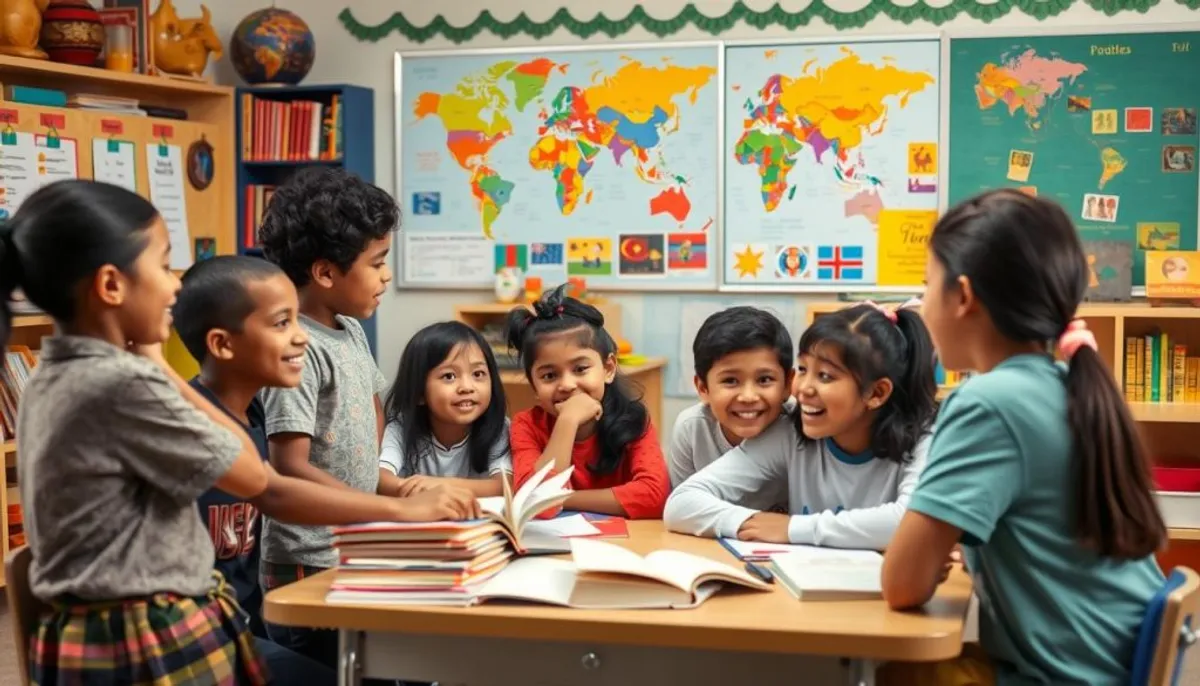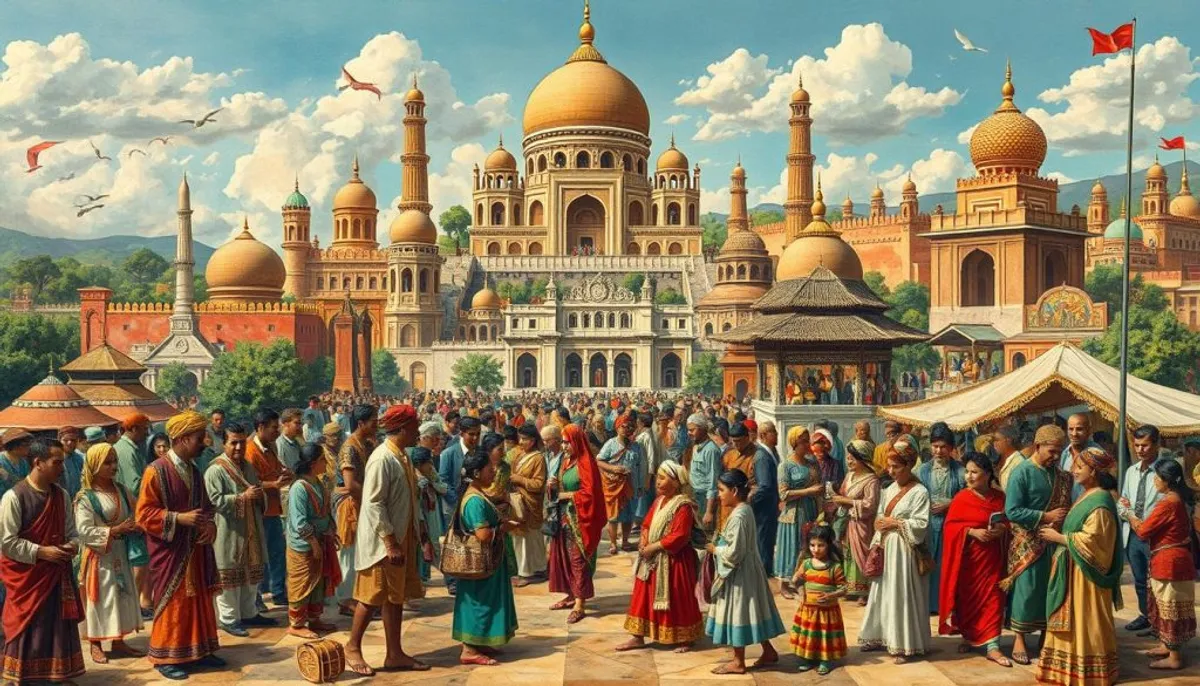The evaluation of cultures raises profound questions in our society. The cultural relativism and intercultural ethics are at the heart of this debate. How can we morally evaluate diverse cultural practices?
Indigenous educational services in Quebec highlight these challenges. Nearly 60% of Indigenous people live in poverty, which affects their academic success. The Indigenous education system requires a complex interaction between federal and provincial authorities and local communities.

The ethical question arises when evaluating these services. How can we ensure respect for cultural diversity while providing quality education? Universalist and relativist approaches diverge on these points. It is essential to find a balance between universal principles and cultural specificities.
The foundations of cultural judgment in modern society
Modern society is evolving, introducing new criteria for judging cultures. This transformation reflects profound changes in our perception and transmission of cultural values, notably through the richness of big apple culture.
The role of the State in cultural preservation
The State occupies an essential place in cultural policy. It creates institutions to preserve and transmit cultural heritage. The school, for example, is a key channel for transmitting values shared by all citizens.
The influence of institutions on cultural transmission
Cultural institutions define what is considered “noble” or “popular.” A study conducted in 2010 among journalism students reveals that:
- None of the 25 students surveyed bought the magazine “Voici”
- Entertainment topics were socially undervalued
- Working-class groups implicitly recognize the cultural superiority of affluent classes
The universal dimension of education
Intercultural education is gaining importance. It aims to train citizens capable of understanding and appreciating diverse cultures. However, tensions can arise between the “official” culture taught in schools and that of local communities.
| Cultural aspect | Role of the State | Impact on society |
|---|---|---|
| Preservation of heritage | Funding for museums and historical sites | Maintaining national identity |
| Transmission of values | Standardized school programs | Strengthened social cohesion |
| Cultural diversity | Support for local initiatives | Mutual cultural enrichment |
In conclusion, cultural judgment in modern society requires a delicate balance. It is necessary to reconcile the preservation of traditions with openness to diversity. The State and institutions play a central role, profoundly influencing our perception and transmission of culture.
Can we judge a culture: anthropological perspectives
Cultural anthropology provides methods to analyze cultures without prejudice. It relies on ethnography and methodological relativism to understand societies in their own context.
The emic approach: an insider's view
Cultural anthropology adopts an emic approach to grasp the worldview of members of a culture. It uses immersion and participant observation to decipher local meanings and internal values.

The etic approach: an outsider's observation
In contrast, the etic approach adopts an external perspective. The ethnographer applies scientific categories to analyze culture, allowing comparisons between societies. This method offers a more objective and distanced perspective.
The complementarity of viewpoints
Anthropologists value both approaches. The fusion of the internal perspective and external analysis enriches the understanding of cultural systems. This complementary approach avoids ethnocentric biases and allows for grasping the complexity of the studied societies.
Methodological relativism, the foundation of modern anthropology, encourages suspending judgment to better understand each culture in its uniqueness. This nuanced approach fosters respectful and enlightened intercultural dialogue.
Ethical relativism and its limits
Ethical relativism, stemming from cultural relativism, raises fundamental questions about cultural values and moral universalism. This approach, which has emerged over the centuries, highlights the complexity of moral judgments in a context of ethical pluralism.
The foundations of cultural relativism
Cultural relativism is rooted in the discovery of new civilizations in the 16th century. The encounter with practices such as cannibalism shook Western consciousness, highlighting the diversity of cultural values. This perspective argues that it is impossible to judge a culture different from our own, as each cultural environment has its own norms.
The critique of absolute relativism
Absolute ethical relativism poses problems in the face of certain questionable cultural practices. There is a moral dilemma between suspending judgment for intellectual honesty and the duty to condemn the unacceptable. Montaigne advocates for suspending judgment to avoid ethnocentrism and allow for a critical evaluation of one's own culture.
Towards a critical ethical relativism
A more nuanced approach proposes a critical and engaged relativism. This perspective aims to transcend the opposition between relativism and moral universalism. It recognizes cultural diversity while maintaining certain fundamental ethical principles. Cultural diversity thus becomes a condition for reflective rationality, capable of critiquing its own culture and revealing potential excesses within it.
Intercultural evaluation: stakes and challenges
Intercultural evaluation is a major challenge in our globalized society. Intercultural competence has become essential, as evidenced by the 170,000 references on Google for this term in French. It is crucial for the success of international businesses, mergers and acquisitions, and the development of new markets.
Cultural biases constitute a major obstacle to fair evaluation. Intercultural communication arises from cultural differences and the feeling of the unknown between individuals. To overcome these challenges, it is essential to establish a solid ethical framework.

The ethics of evaluation must take into account the diversity of cultural perspectives. Recent studies show that cultural interaction can be positive, interesting, negative, or uninteresting between contrasting groups. Therefore, it is crucial to adopt a nuanced and contextual approach.
Economic globalization has heightened the manifestation of intercultural characteristics in individuals. This underscores the importance of intercultural evaluation that respects the specificities of each culture while seeking common ground. The goal is to create authentic dialogue, avoiding cultural hegemony and promoting enriching mutual understanding.
Intercultural dialogue as a method of analysis
Intercultural dialogue proves to be a crucial method for analyzing cultures. It relies on intercultural communication to provide a deep and detailed understanding of varied cultural perspectives.
The conditions for authentic dialogue
An authentic intercultural dialogue requires an open mind and the ability to suspend judgment. In French-speaking Belgium, where 1 in 10 Belgians is of immigrant origin, this approach is essential. It encourages an ethics of dialogue based on mutual respect and recognition of cultural differences.
Cultural mediation in evaluation
Cultural mediation is fundamental in intercultural evaluation. It facilitates mutual understanding between cultures, as shown by the example of common vocabulary in Belgium. Words like “chocolate,” “rice,” and “potato” illustrate these enriching cultural exchanges.
The role of cultural mediators
Cultural mediators, trained in various cultural contexts, play a crucial role. Their expertise has evolved since the establishment of the Foreign Service Institute in the United States in 1947. This marks the beginning of the cultural identity in modern Africa.
| Year | Event |
|---|---|
| 1947 | Creation of the Foreign Service Institute in Pittsburgh |
| 1974 | Launch of the International and Intercultural Communication Annual |
| 1977 | Creation of the International Journal of Intercultural Relations |
| 1979 | Foundation of Sietar France |
This evolution highlights the growing importance of cultural mediation in our interconnected world. It underscores the need for an ethical and respectful approach in the analysis of cultures.
Conclusion
Intercultural ethics urges us to reconsider how we judge cultures. It emphasizes the value of cultural diversity while highlighting the importance of universal ethical principles. This perspective guides us towards a deeper understanding of our shared humanity.
Intercultural dialogue is crucial for navigating this complexity. Paul Ricoeur teaches us that cultural exchanges allow for the universalization of specific values. This approach avoids the pitfalls of ethnocentrism, as highlighted by Lévi-Strauss. It also recognizes the limits of absolute cultural relativism.
In summary, evaluating cultures requires a subtle balance. It is necessary to consider the perspectives of thinkers such as Jacques Bouveresse and Charles Taylor. Their contrasting views on cultural relativism and ethnocentrism help us better understand cultural diversity. This fosters mutual respect and harmonious coexistence in our globalized world.
RelatedRelated articles


